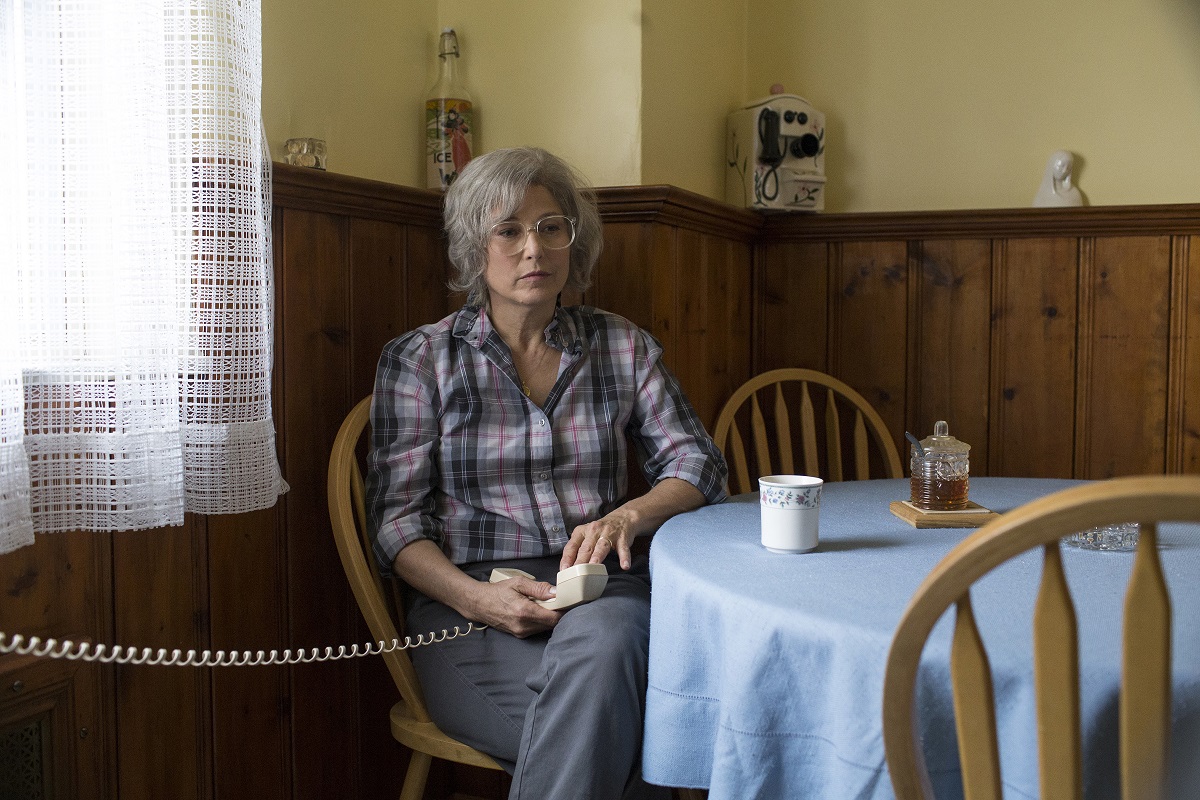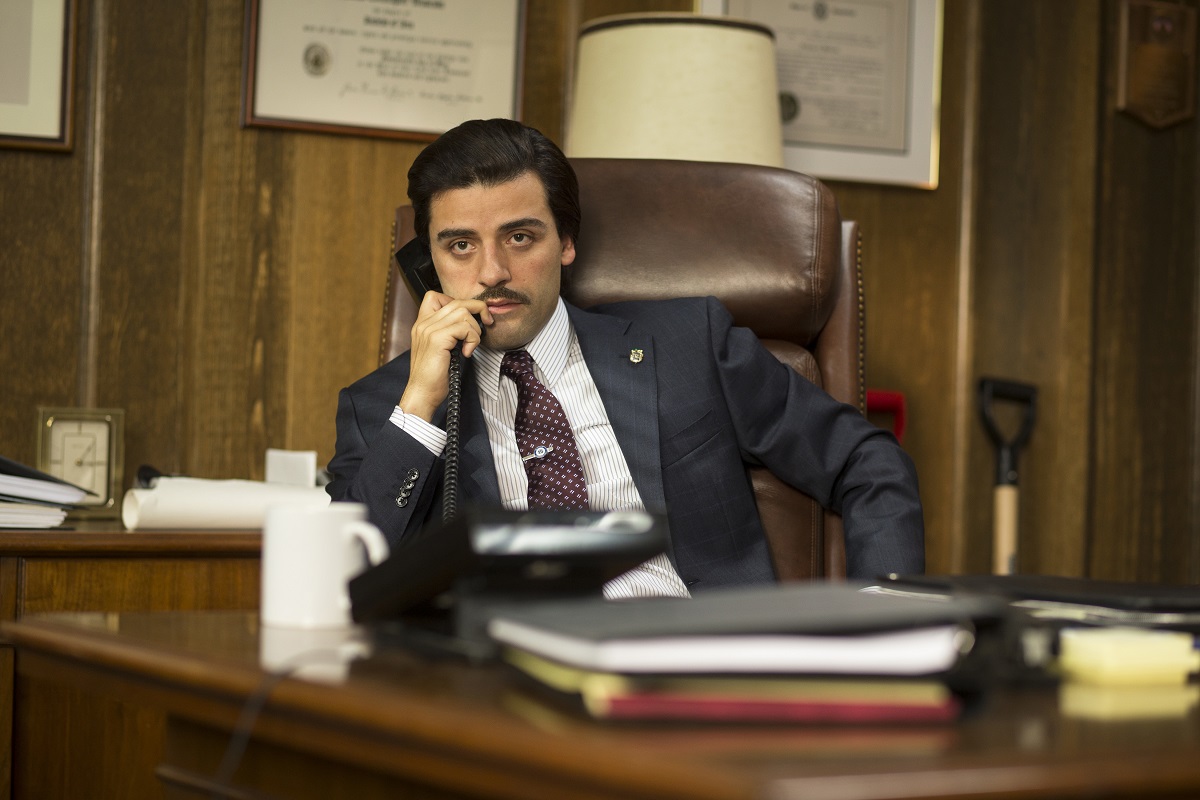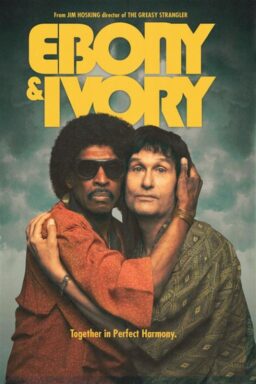“Show me a hero and I’ll
write you a tragedy.” –F. Scott Fitzgerald
Based on the true story of the development of low-income housing in
Yonkers, New York in the late ‘80s and early ‘90s, HBO’s “Show Me a Hero” is
the TV event of the Summer, a mini-series that plays like a great American
novel or a lost Sidney Lumet movie. Over six hours, writer/creator David Simon
(“The Wire”) and director Paul Haggis (“Crash”) craft a piece dense with
political machinations that somehow never loses its focus on the people who get
caught up in the web of public policy decisions and the people who make them.
Oscar Isaac ably leads a stellar ensemble but this is Simon and co-writer
William F. Zorzi’s show and the product has that same attention to detail as “The
Wire” and “Treme” while adding a notable layer of cultural resonance given the
issues it addresses that remain troubling to this day.
Oscar Isaac plays Nick Wasicsko, who was elected Mayor of
Yonkers in 1988 and was the youngest Mayor in the country at the time. When
elected, the city was going through major upheaval over a proposal for lower income
housing. City council meetings were almost impossible to hold over the loud,
screaming, borderline violent protests both in the room and outside. The people
of Yonkers wouldn’t take no for an answer. In stereotypical New Yorker fashion,
they dug in their heels and demanded to be heard. They voted out Wasicsko’s
predecessor (Jim Belushi) because he couldn’t stop the proposal. It’s now Nick’s job to
appeal it in the premiere episode.

Of course, that’s not going to be easy. A judge (Bob
Balaban) has ordered that the proposal will pass, planning will commence, and
construction will shortly follow, or he will hold the entire city of Yonkers
in contempt, fining its government at such a rate that it will be bankrupt in a
few weeks. Suddenly, the favorite young Mayor becomes the guy who couldn’t meet
his constituent’s needs. The hotshot on the block goes from favorite son to
pariah. And the political games behind the scenes don’t help, especially as
people like Councilman Henry J. Spallone (Alfred Molina) conspire against him
to get his seat. As Nick battles for his political status, he also seems to
grasp that the housing project is an important one, even if making it a reality
destroys his entire career.
Meanwhile, “Show Me a Hero” cuts to several subplots that
remain unrelated for multiple episodes. We meet several supporting characters, often in brief scenes as their lives progress unaware of the politics that will influence them, including a Dominican woman trying to support her family, a new couple who
seems to be headed to happiness, a woman in the projects going blind from
Diabetes, and a girl who finds herself unexpectedly pregnant. They don’t
intersect for several nights, and yet they always feel like patches in the same
quilt. It’s also interesting to me that the government cast is filled out with
recognizable faces (including Catherine Keener, Winona Ryder, Jon Bernthal,
Peter Riegert, and more) while the subplots are cast largely with unknowns. It
adds to the sense that political office is as much a popularity contest as
anything.
The subplots get more desperate as the narrative progresses.
Ends don’t meet. Tragedy strikes. Drugs infest the projects. Crime grows. It is
the saga of city life in the late ‘80s and early ‘90s as politicians bicker. As
he did in “The Wire,” David Simon is again examining how systems and civilians
are intertwined. We may not even know about the decisions being made today that
will impact our lives down the road—or the stands that could have been taken to
help us that politicians were too cowardly or too concerned about reelection to
make. “Show Me a Hero” never feels like its grandstanding or preaching from a
soapbox, and yet it captures so much about our system that other political
pieces have failed to do. How do people with integrity subvert that for their
careers? How do people lead when they are in a 2-year term system that doesn’t
support the kind of daring decisions leaders need to make to matter?

Simon and Haggis are brilliant but careful in the way they
portray the fear and racism that led to the anger over the lower-income
housing. There’s an incredible speech later in the series in which Wasicsko
notes how easily politicians spur fear through language and the way they bury
their true meaning in more acceptable phrases. When politicians riled up the
people of Yonkers with phrases like “property values,” “Life and Liberty,” and “people
living where they can afford,” they were merely saying things said by White
America during the Civil Rights Movement in different ways. As Nick says, “They learned how not to say the bad words.”
“Underneath it all is fear—same as it
ever was.” How could anyone watch this story and not think of the way
politicians and media influence the conversations about race and equality in
2015? It’s clearly part of the purpose of the piece.
With “Show Me a Hero,” Oscar Isaac further proves his status as one of the best of his
generation. Add this turn to his subtle work in “Inside Llewyn Davis,” “A Most Violent
Year” and “Ex Machina,” and it’s impossible to deny. He’s mesmerizing in the way he captures Wasicsko’s desperate
need to be liked—a trait shared by most politicians—but also senses that this
man really wanted to make a difference. There’s a gutwrenching scene at the end
of episode five in which we watch two characters, including Wasicsko, suffer in
silence. Watch Isaac in this scene. Watch him convey more inner monologue with
no dialogue than most actors do with an entire speech. He’s matched by Keener,
who does great work as a woman caught up in the protests who learns that the
loudest people aren’t often the right ones. Newcomer Ilfenesh Hadera really
shines as well as a young woman doing everything she can to keep her family
together.
Visually, Haggis is careful not to overplay his social message here as
so many would argue he did in “Crash.” His style isn’t flashy, clearly inspired
by Lumet’s New York tableaus. Music choices are a bit obvious—lots of Bruce
Springsteen and Public Enemy—but somehow feel appropriate. The Boss often
captured tragic undercurrents beneath working class life, so it fits. There’s
only one scene that feels a bit too on-the-nose for my taste, but I think it
stands out largely because the rest of the piece is so subtle. In fact, some
will find “Show Me a Hero” too dry. There are a lot of political meetings,
especially in the first half. Please be patient. The emotions come and they
will hit you. Hard.
At the end of episode four of “Show Me a Hero,” someone
yells over a protesting crowd, “What are
we trying to accomplish?!?!?” It was the first time in the mini-series (but
not the last) that I got a little emotional. Lost in the noise and the racism
and the hatred of this world, it’s a question that doesn’t get asked often
enough by our leaders or even of ourselves. And when we do ask it, will there
be any heroes left to hear it?












